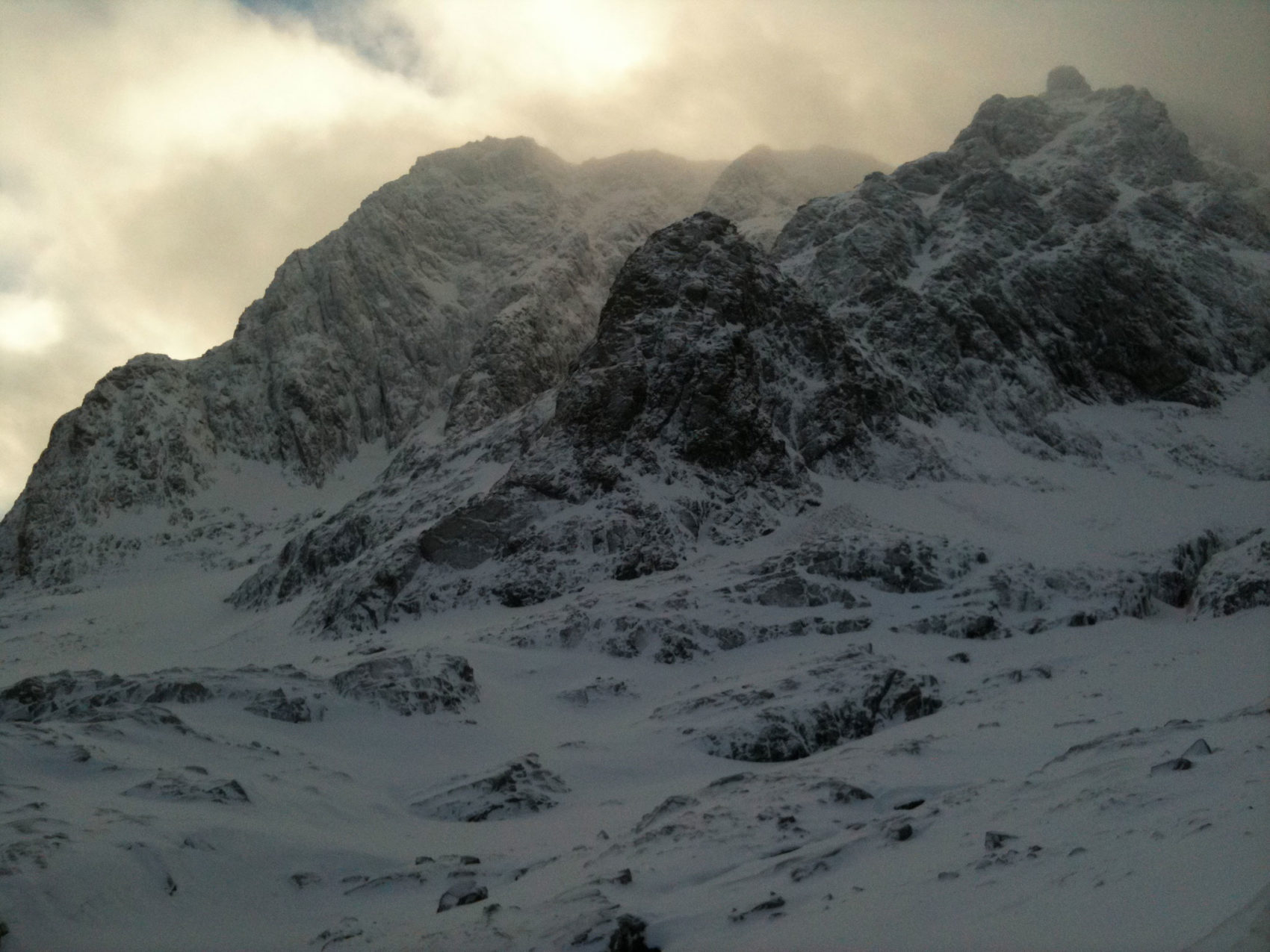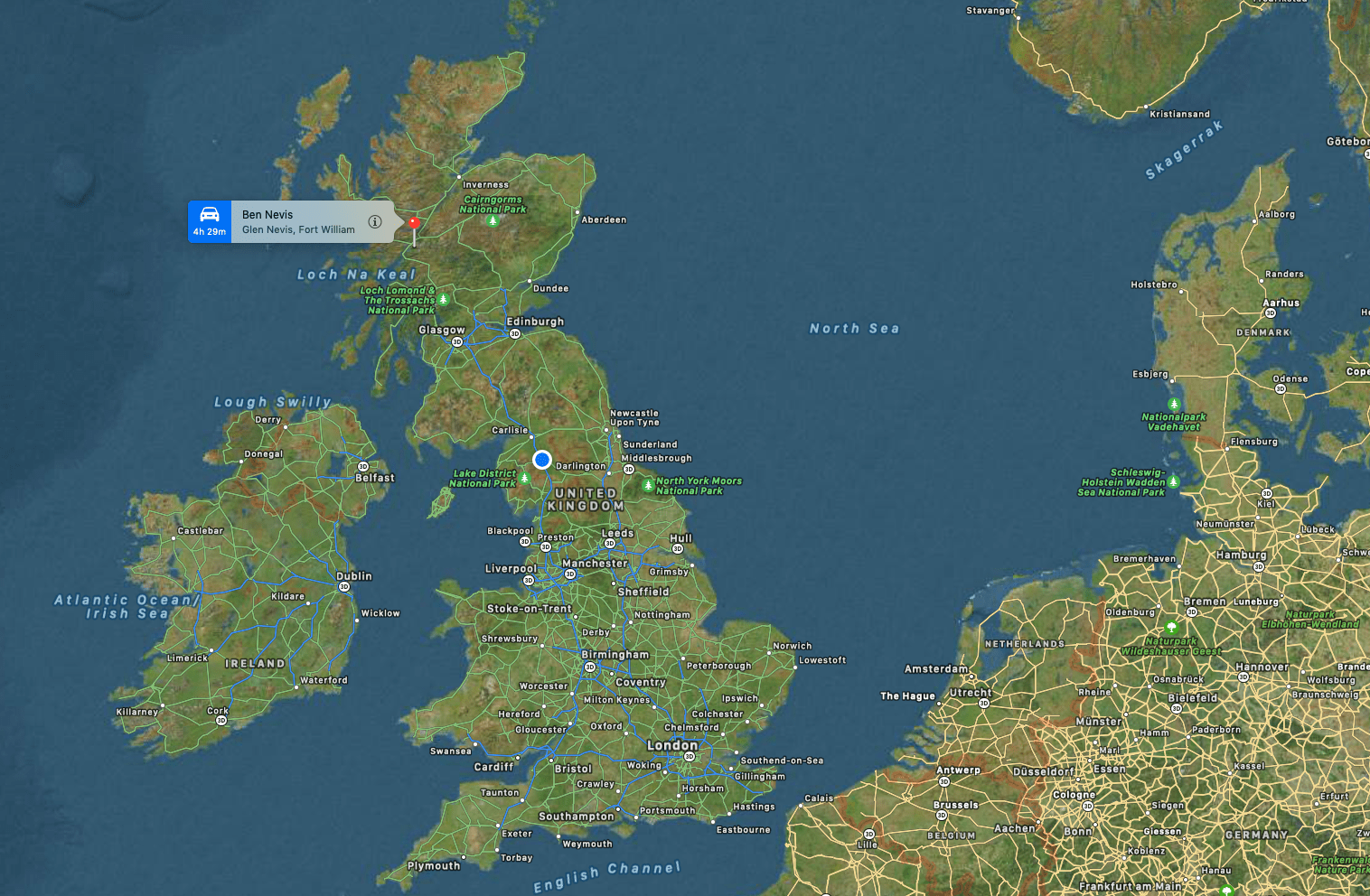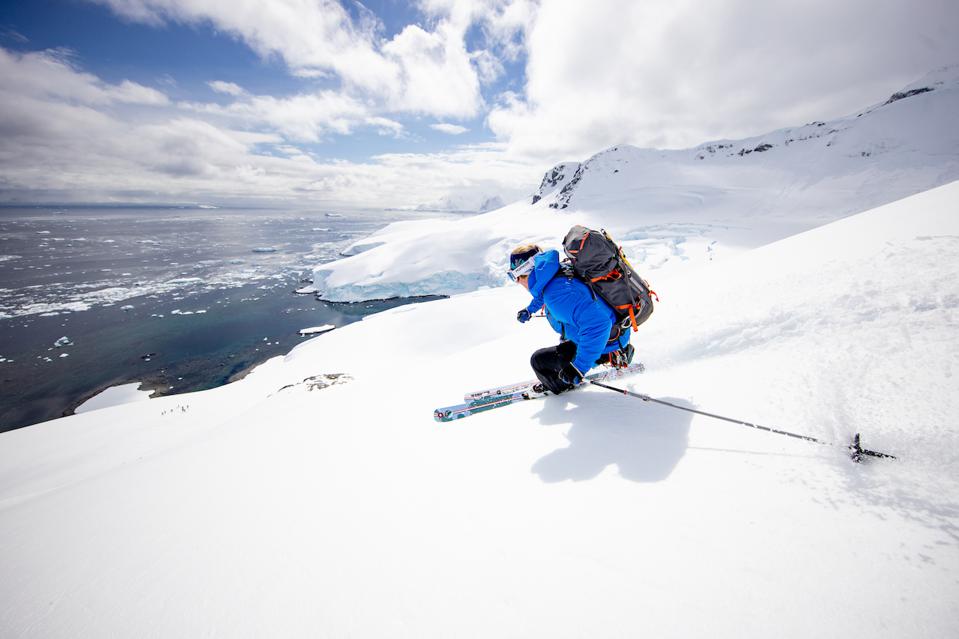
Four people who had to be rescued from near the summit of the UK’s tallest mountain are lucky to be alive, according to their rescuers.
The group was caught in blizzard conditions on Ben Nevis in Scotland with “no ice axes, no crampons and as far as we are aware no maps”. Three of them were wearing trainers
Lochaber Mountain Rescue Team took all four by helicopter from part-way down the mountain to be checked over at Belford Hospital in Fort William. The rescue helicopter, R151, could not be used near the summit because of the severity of the conditions.
“All casualties lifted from Half Way Lochan by R151 and transported by Team to the Belford Hospital. Extremely lucky people. No winter kit – no ice axes, no crampons and as far as we are aware no maps,” the rescue team said. “Three of the guys were in trainers! They were about 150 meters down into Coire Eoghainn on steep ice and if they had slipped or gone down any further consequences could have far more serious.”
The rescue team described as “horrendous” weather with the wind chill about -20C.

Ben Nevis is the highest mountain in the British Isles. Standing at 1,345-meters (4,411ft) above sea level, it is at the western end of the Grampian Mountains in the Lochaber area of the Scottish Highlands, close to the town of Fort William.
The mountain is a popular destination, attracting an estimated 100,000 ascents a year, around three-quarters of which use the Pony Track from Glen Nevis. The 700-meter (2,300ft) cliffs of the north face are among the highest in Scotland, providing classic scrambles and rock climbs of all difficulties for climbers and mountaineers. They are also the principal locations in Scotland for ice climbing.
The summit, which is the collapsed dome of an ancient volcano, features the ruins of an observatory which was continuously staffed between 1883 and 1904. The meteorological data collected during this period are still important for understanding Scottish mountain weather. C. T. R. Wilson was inspired to invent the cloud chamber after a period spent working at the observatory.




